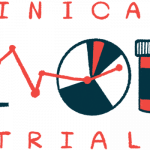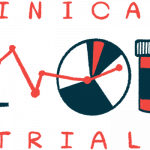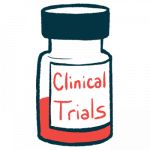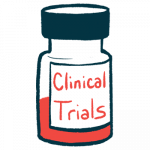Eisai has partnered with Geisinger to assess whether a machine-learning model can accurately identify people with cognitive impairment — which may suggest early signs of dementia. Machine learning is a form of artificial intelligence (AI) that uses algorithms to analyze data, learn from its analyses, and then make a prediction. The AI tool will be…
About Alzheimer’s Disease
Walking into a room and forgetting why you went into the room is normal. Walking into a room and forgetting what room you are in is not normal. Alzheimer’s disease is the most common form of dementia and affects one in ten people over the age of 65. Unfortunately, the exact cause of Alzheimer’s disease is not fully understood however leading scientific experts in the field attribute the illness to the irreversible and progressive generalized degeneration of the brain. Alzheimer’s disease goes well beyond the forgetfulness that may accompany aging, and typically first signs include difficulty remembering current information or performing new tasks. Ongoing hallmark symptoms include impaired memory function, difficulty performing everyday tasks, and neurobehavioral abnormalities. Currently, there is no known cure for Alzheimer’s disease, and multi-disciplinary treatment focuses on symptom management and limiting progression.
Conditions
Alzheimer’s News
NNI-362 Is Safe, Lowers Alzheimer’s Biomarker in Older, Healthy Adults
NNI-362, Neuronascent’s investigational treatment for Alzheimer’s disease, was safe and reduced blood levels of an Alzheimer’s biomarker in a Phase 1a trial of the therapy in healthy, older adults. The primary goal of the trial (NCT04074837), which enrolled 56 adults between the ages of 50 and 72, was to determine the safety and tolerability of…
Medicare Coverage of Aduhelm Will Be Limited to Patients in Trials
The Centers for Medicare and Medicaid Services (CMS), in a final national policy decision, is allowing Medicare to cover the cost of Aduhelm (aducanumab) and other medicines in its class given accelerated approval only for Alzheimer’s disease patients enrolled in qualifying clinical trials. Should Adulhelm or future amyloid-targeting monoclonal antibodies be given standard or full — rather than…
AL001 May Deliver Lithium’s Benefits for Dementia With Less Toxicity
Alzamend Neuro’s experimental oral therapy for dementia related to Alzheimer’s disease may deliver the benefits of marketed lithium-based treatments but with fewer side effects, data from a completed Phase 1 trial show. A 150 milligrams (mg) dose of the therapy, called AL001, led to similar levels of lithium in the blood as a 300 mg…
#AAN2022 – SAGE-718 May Help With Cognitive Function in Alzheimer’s
Treatment with the investigational candidate SAGE-718 was generally well-tolerated and associated with cognitive improvements in people with Alzheimer’s disease, according to preliminary results from the LUMINARY Phase 2 clinical trial. The therapy’s developer, Sage Therapeutics, presented these findings in a talk, titled “SAGE-718 in Patients With Mild Cognitive Impairment or Mild Dementia Due to Alzheimer’s…
Biogen Submits Final Protocol for Phase 4 Aduhelm Study to FDA
Biogen, the co-developer of Aduhelm (aducanumab) has submitted the final protocol for ENVISION — the Phase 4 post-marketing study of the therapy in early Alzheimer’s disease — to the U.S. Food and Drug Administration (FDA) for review and approval, the company has announced. Screening of the first patient is expected in May, according to Biogen’s press…
Prothena’s PRX012 Trial Begins Dosing Patients, Healthy Volunteers
Prothena has begun testing single ascending doses (SAD) of PRX012, its investigational anti-amyloid beta antibody therapy, in a Phase 1 clinical trial with healthy volunteers and people with Alzheimer’s disease. This follows the recent approval of the company’s investigational new drug (IND) application for PRX012 by the U.S. Food and Drug Administration. A next-generation antibody,…
Adults, Doctors in US Struggle to Tie Cognitive Problems to Alzheimer’s
Most adults in the U.S., as well as many doctors, have difficulty distinguishing between the early stages of Alzheimer’s disease and cognitive changes due to normal aging, according to the latest annual report from the Alzheimer’s Association. The report draws on responses to surveys, one of adult Americans and another of primary care physicians in the…
Dual Vaccine Shows Promise for Treating Alzheimer’s in Early Study
A dual vaccine targeting both amyloid plaques and tangled fibers made up of tau — two abnormal protein aggregates that build up in the brain of those with Alzheimer’s — may have potential to treat and prevent the disease. Prothena, its developer, has found preclinical evidence that the vaccine drives the generation of a sufficient…
Trial Data Further Support Gingipain Suppression as Potential Therapy
Atuzaginstat (COR388), Cortexyme’s investigational oral therapy, effectively suppressed the activity of its target — toxic enzymes called gingipains — and was associated with reductions in several disease biomarkers in people with mild-to-moderate Alzheimer’s, according to updated data from the Phase 2/3 GAIN clinical trial. Similar to previously reported findings, these benefits were most pronounced among patients…
Amyloid, Tau Levels Continuing to Fall With Aduhelm’s Long-term Use
Aduhelm (aducanumab) continues to clear away amyloid plaques and tangled fibers made up of tau — two abnormal protein aggregates that build in the brain of those with Alzheimer’s disease — after nearly two and a half years of treatment, Biogen, which markets the treatment, reports. It also announced plans to begin patient screening for ENVISION,…
AEV103 Can Quell Brain Inflammation, Slow Cognitive Decline in Mice
AEV103 (3,6’-dithiopomalidomide), a potentially immunomodulating medicine, was able to quell brain inflammation and slow cognitive decline in a mouse model of Alzheimer’s disease, a study has found. The medicine, developed originally at the National Institutes of Health (NIH) and now licensed to AevisBio, exerted its effects even in the absence of any change in the…













